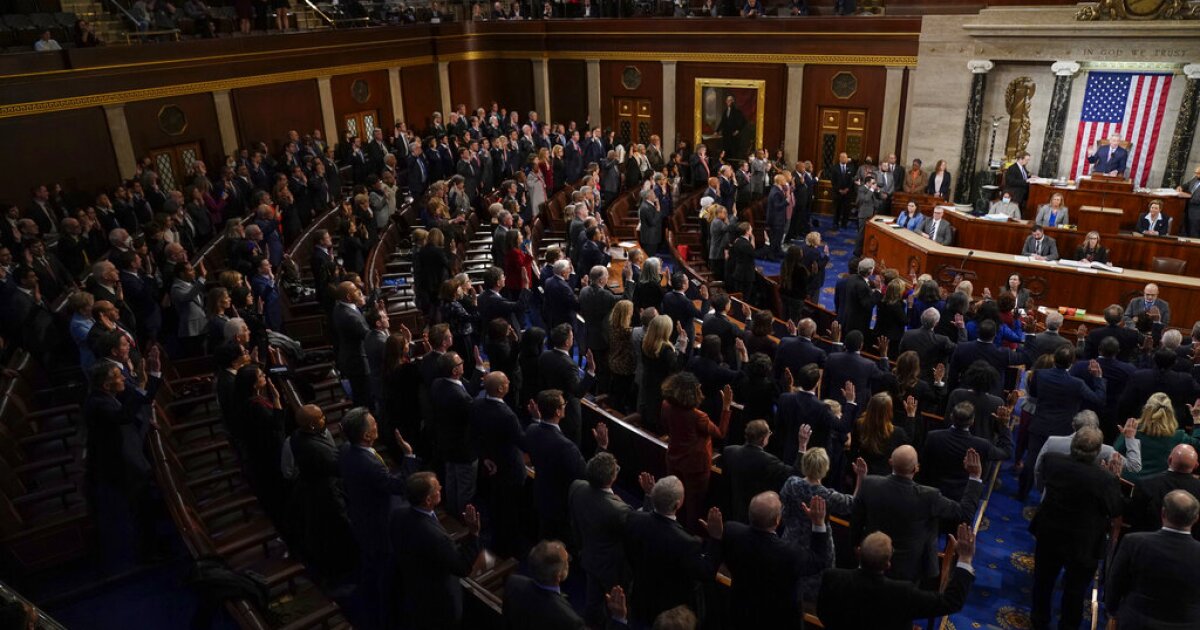

Fresh off regaining control of the House, Republicans are still work-shopping healthcare reform policies, with the days of “repeal and replace” Obamacare a distant memory as they look toward building their 2024 national platform.
Republican lawmakers have plans for oversight of the Biden administration and legislation related to specific areas, such as the opioid crisis and drug pricing. As for the broader healthcare system and health insurance, though, Republicans are steering clear of proposals or even high-profile debates.
RSV VACCINES TO RECEIVE REVIEW BY FDA ADVISORY PANEL
“I don’t think that there’ll be any sort of focus on repeal and replace. I think that that ship has come to sail or has already sailed,” said Brian Miller, a nonresident fellow at the American Enterprise Institute, a conservative think tank. “Republicans are going to be proactive in thinking about what they can do at least for payment and delivery, promote a market-based system that will make care more convenient and also lower costs. And I think that there’s going to be a huge focus on public health institutions.”
The last time Republicans controlled the House, GOP leaders championed efforts to roll back former President Barack Obama’s signature 2010 health law but failed to pass a pared-down repeal bill in 2017 as three Republican senators — John McCain, Susan Collins, and Lisa Murkowski — joined Democratic ranks.
Now, Republican lawmakers have expressed little to no appetite to revisit discussions about repealing or overhauling facing a much different political climate with Democrats in charge of the Senate and Oval Office.
Many prominent Republicans shied away from a discussion about replacing Obamacare on the campaign trail. Sen. Chuck Grassley (R-IA), for instance, declined last year to say what the party’s plan was for healthcare beyond that “it’s not repealing the Affordable Care Act.”
In the meantime, the law has become more entrenched. More than 50% of voters in the United States now approve of the Affordable Care Act, according to a recent Morning Consult-Politico survey.
The Biden administration has lauded the successes of the health law, whose primary goals were to reduce the number of uninsured people and provide more affordable coverage options through the expansion of Medicaid, public health insurance for people with low incomes, and the creation of exchanges that provided subsidized plans. A record-breaking 16.3 million-plus people sought health insurance through the Affordable Care Act exchanges this year, double the amount covered when it first launched almost a decade ago. Several GOP-led states have even expanded access to Medicaid after initial reluctance.
There is little agreement among Republicans about what an alternative to be signed by a GOP president in 2025 might look like and little appetite to hash out a consensus position against the backdrop of public disapproval.
Instead, Republicans are focused on their oversight powers in the short term to address drug pricing controls newly enacted under Democrat’s Inflation Reduction Act, the opioid crisis, and transparency from public health institutions like the Centers for Disease Control and Prevention as they craft a path forward for policy.
“Oversight, of course, shines a spotlight on agencies, policies,” said Miller. “I think at the end of the day that oversight will be driven with the idea to help promote pragmatic policy and good law that’s good for the American people.”
Key health committees have already held hearings on the federal government’s response to the COVID-19 pandemic, the opioid crisis, and shortage of healthcare workers. In recent weeks, House Republicans have also succeeded in passing a number of bills, including legislation to end the COVID-19 public health emergency and another bill to end a vaccine mandate for healthcare workers, though they have slim chances of being signed by President Joe Biden.
“I think you’ll see a lot of pieces that are more thought of as messaging pieces but really laying the groundwork for future actions when maybe the political climates are different,” said Drew Keyes, a senior policy analyst at the Paragon Health Institute.
The Republican Study Committee, the GOP’s largest caucus, has supported reforms that would oppose price controls, expand access to Health Savings Accounts, and increase choice among insurance plans in their blueprint for fiscal 2023. Still, there remains a lot of ambiguity about which health proposals Republicans will rally around moving forward as recent focus has been on discussions to raise the debt limit to avoid the federal government defaulting on its debt.
CLICK HERE TO READ MORE FROM THE WASHINGTON EXAMINER
“Congress is going to have to get serious about just how unsustainable the federal health programs are,” said Brian Blase, president of Paragon Health Institute and former special assistant to the president for economic policy for the White House’s National Economic Council during the Trump administration. “From a fiscal perspective, these programs are crowding out other parts of the government budget, leading to massive deficits, and will threaten Americans’ standard of living unless Congress deals with them.”







